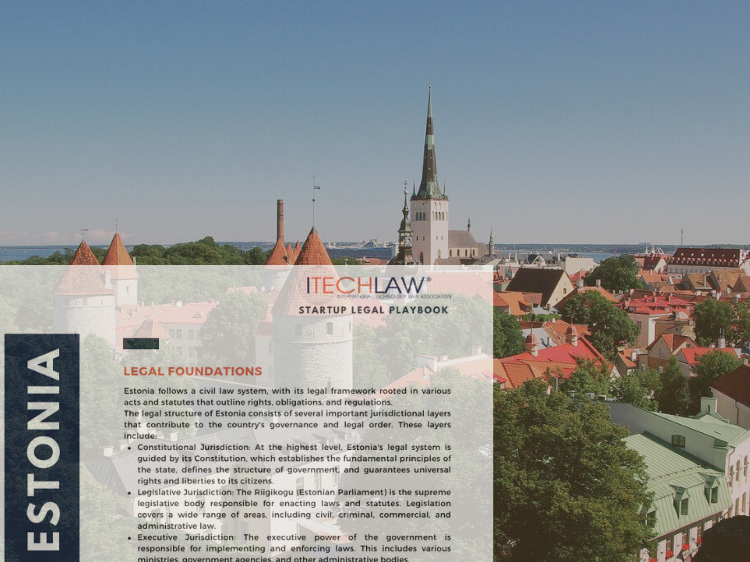
In 2014, the European Union (EU) public procurement directives [2] were adopted, codifying, among other things, the case law of the European Court of Justice on the modification of public contracts, which significantly extended the possibilities to modify a public contract. The public procurement directives were adopted into Estonian law by the Public Procurement Act. The Public Procurement Act was adopted on June 14, 2017. and entered into force on September 1, 2017.
The pandemic and the war in Ukraine have posed significant challenges to the application and interpretation of public procurement regulations. During the drafting of the public procurement directives, it was unforeseeable how the measures implemented to control the pandemic, along with the subsequent impact of the war in Ukraine- leading to supply chain disruptions and substantial increases in the prices of goods and services- would affect the execution of procurement contracts. Considering this, the question arises: can a general rise in prices and high inflation justify modifications to the terms of a procurement contract?
In order to ensure that the general principles of public procurement (equal treatment of tenderers, transparency and non-discrimination) are followed, contracting authorities must consider any modification to the contract with the utmost care.
The possibilities for amending a procurement contract can be conditionally divided into three categories:
– Non-substantial modifications, which are always permissible;
– Substantial modifications, which are admissible under certain conditions;
– Significant modifications to the general nature of the contract (e.g. in the case of conversion of a service contract into a concession) which are prohibited.
Non-substantial modifications are permitted without additional conditions, including consideration of their monetary value. In certain cases, changing the duration of the procurement contract has also been considered a non-substantial modification. For instance, the Tallinn Administrative Court in case 3-20-1150 found that although the period of performance of the contract is an essential term of the contract, not every change to the time-limit gives rise to the automatic conclusion that the contract has been substantially modified.
When the terms of a contract that are qualitatively significant, such as the contract price, are amended, this constitutes a substantial modification of the procurement contract (European Court of Justice ruling in case number C 454/06: Pressetext, para. 59). The determination of whether a change to the terms of a procurement contract is substantial is a matter of interpretation, although the law provides an indicative list of circumstances under which a contract modification may be considered substantial:
– the modification introduces a condition which, had it been part of the procurement documents, would have attracted additional participants in the procurement procedure or increased the number of tenders to be declared suitable;
– the modification results in a change in the balance of mutual contractual obligations arising from the public contract in favour of the economic operator in a way not provided for by the public contract;
– the modification extends the scope of the subject matter of the public contract considerably;
– the economic operator is replaced by a new economic operator and this possibility was not foreseen in the contract documents or the replaced economic operator would not have fulfilled the qualification criteria set out in the contract documents.
The law establishes specific grounds for the right to modify the contract.
The most unambiguous and clearest of these is provided in § 123(1)(1) of the Public Procurement Act (the so-called “de minimis rule”), which states that the contracting authority is entitled to amend the awarded public contract without organising a new public procurement procedure if the general nature of the public contract, for example the subject of the public contract, is not changed and the value of the amendments does not exceed the threshold set in the Public Procurement Act or 10 % of the original value of the public supply or service contract or 15 % of the original value of the public works contract or 10 % of the value of the concession contract.
The Estonian Supreme Court has held in case nr 3-20-1150 that any change to the pricing terms in a contract pursuant to Publiv Procurement Act (PPA) § 123(1)(1) does not constitute a change to the general nature of the contract, although the change may be material pursuant to PPA § 123 subsection 2 points 1 or 2. The aim of PPA § 123 subsection 1 point 1 is to allow changes which are substantial but not significant in monetary terms, i.e. in quantitative terms (de minimis changes; cf. Case C-454/06, p. 61). The fact that a contract term originally contained in the basic documents was amended and that different tenders might have participated in the tender procedure if the terms had been amended shows that the amendment is substantial in substance, but does not prevent the application of the de minimis exception.
One of the preconditions for applying the de minimis rule is that the modification, although small in monetary terms, must not affect the overall nature of the public contract. The general nature of a public contract, as an undefined legal concept, is subject to interpretation by case law.
To avoid potential disputes, it is advisable to set out the conditions for modifying the public contract already in the procurement documents and the contract itself. For example, the law allows for the possibility of price indexation. The mere possibility to negotiate certain conditions provided for in the procurement contract is not sufficient to apply the modification clause. The preconditions for modifying the contract must be clearly and unambiguously stated to avoid unequal treatment of bidders and violations of the principle of transparency in the procurement process.
According to the Law of Obligations, under certain conditions, a contract may also be amended due to a price increase. Specifically, if after the conclusion of the contract, the circumstances underlying the contract change, leading to a significant alteration in the balance of obligations between the parties, such that the cost of fulfilling one party’s obligations increases substantially or the value of what the other party receives decreases significantly, the aggrieved party may request a contract amendment to restore the original balance of obligations.
According to § 97 of the Law of Obligations Act, a request for amendment of a contract can be made only if the following conditions are met:
-at the time of entry into the contract, the injured party could not have reasonably expected that the circumstances might change,
– the injured party could not influence the change in the circumstances,
– the risk of a change in the circumstances is not borne by the injured party pursuant to the law or the contract,
– the injured party would not have entered into the contract or would have entered into the contract under significantly different terms if the party had known of the change in the circumstances.
All the above conditions must be fulfilled in order to submit a request for amendment of the contract. Assessing whether these conditions have been met can be difficult and it is therefore advisable to seek professional advice.
Magnusson Eesti has a long-term experience in submitting contract amendment claims due to change of balance of contractual obligations. Magnusson Estonia’s attorneys have also represented clients in negotiations for the modification of a public contract. If you have any questions, please do not hesitate to contact our specialists.
[2] Directive 2014/24/EU on public procurement, Directive 2014/25/EU on procurement by entities operating in the water, energy, transport, and postal services sectors, Directive 2014/23/EU on the award of concession contracts, and Directive 2009/81/EC coordinating procedures for the award of certain works contracts, supply contracts, and service contracts by contracting authorities or entities in the fields of defense and security.
Contact me and learn more

Stig Hendrikson
Senior Associate
Corporate and M&A, Dispute Resolution, Energy, Public procurement, Restructuring and Insolvency, White-Collar Crime
Send me an email +372 670 8401 +372 5560 7064









